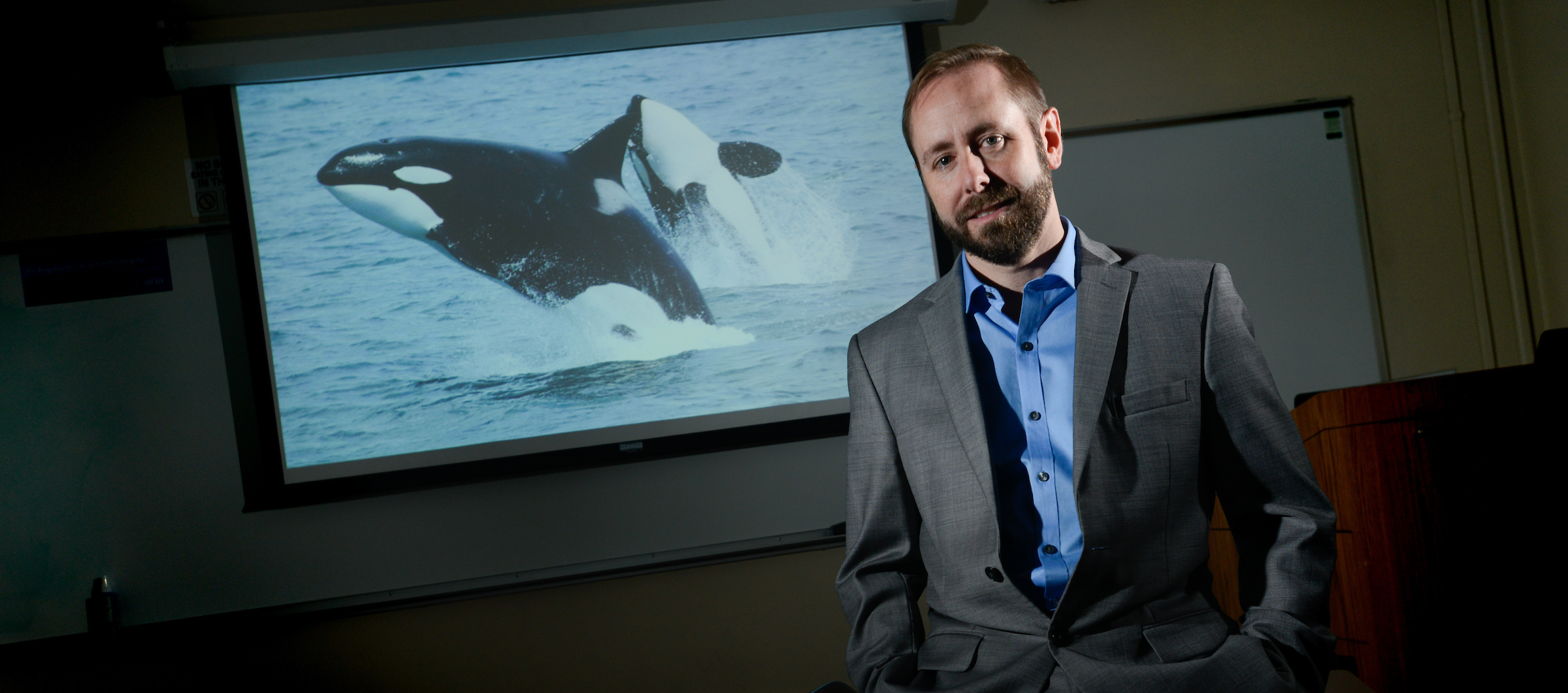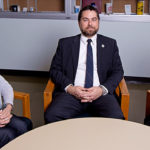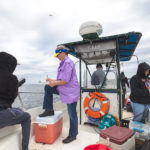Chris Fenner Talks ‘Blackfish,’ Crisis Management and PR in Emerging Markets
Pensacola – Dr. Chris Fenner is an assistant professor in the University of West Florida Department of Communication. He is the coach of UWF’s competitive speech and debate team, and he teaches public relations and strategic communication courses. His research interests include public relations education, crisis management and strategic management of new media.

Earlier this year, he traveled to Bangkok to present his research at the World Conference on Media and Mass Communication.
Q: What topics did you present at the conference, and how were your presentations received?
Fenner: I presented three papers at the conference: “Going under: SeaWorld and the lingering ‘Blackfish’ crisis”; “The Argonaut and the Nautilus: Branding challenges at a midsize regional university”; and “Spanning the Gaps: Exploring the connection between public relations curriculum and entry-level positions.”
Many of the conference participants were from Southeast Asia and Middle Eastern countries where public relations is a rapidly emerging industry, so there was a lot of interest in the U.S. approach to curriculum-development for public relations programs.
The SeaWorld article, which focuses on the long-running image challenges facing SeaWorld Parks & Entertainment, was also very well received. Much of the negative coverage SeaWorld has generated has mostly been picked up by Western media, so the issue was less known amongst my international peers. The cultural differences in journalistic practices, as well as perceptions of animal rights issues, also lent itself to a great discussion during the question and answer section of the presentation.
There seemed to be a lot of interest in both the PR education paper and the SeaWorld paper. I was honored to be recognized as the top presenter in the session where I presented the “Spanning the Gaps” paper, and also recognized as the top presenter overall at the conference.
Q: What factors do you consider when picking topics to research?
Fenner: I am primarily interested in the intersection between public relations efforts and media framing in coverage. I try to focus on events that will likely have a significant impact on an organization or individual to to see what types of persuasive efforts are utilized.
I find it fascinating to look at how crisis situations are covered in the media and the public relations efforts, or lack thereof, that are employed to shape that coverage. We have so much access to information today that the public often forms or changes opinions very quickly. Sometimes a minor transgression can sink an organization, while other times, the public is willing to forgive fairly significant missteps.
My research interests connect very easily to the courses I teach in persuasion, public relations and strategic communication. I view emerging public relations issues as living case studies where my students, and I can analyze how messages are shaped by institutions and then try to predict public reactions.
Q: Being in Thailand, at a worldwide conference, did you observe cultural differences in how people perceived the research?
Fenner: The conference was an excellent opportunity to see how other parts of the world are dealing with emerging trends in the media and social media. I think in the U.S., we often take for granted the importance of a free press and are overly focused on the shortcomings of media coverage. In many places around the world, members of the media put their lives at risk to cover sensitive political or cultural issues. Similarly, social media has changed the nature, the way in which we communicate and interact both locally and globally.
This conference opened my eyes to the types of issues that my colleagues abroad are exploring through their research, such as how political insurgent groups communicate in controlled media markets, how impacted communities make sense of acts of war or terrorism, or the use of new media in combating public health crisis.
Other presentations really underscored how much we all have in common across the globe. It was nice to discover that my colleagues at universities and colleges around the world share many of the same challenges with social media in the classroom. Sneaking a quick text under your desk in class seems to be global phenomenon.
Q: What did you learn at the conference that you were able to bring back and apply to your own work?
Fenner: Overall, the conference gave me a lot to think about and some insights into international media issues to discuss with my own students. The U.S. media system has such a long reach that it’s important to step back and think about the types of messages we are sending across the globe. I am hoping to participate in the conference next year and hopefully take a few of my students along to present during the poster sessions.
These types of opportunities allow for great scholarship and help introduce an international audience to the University of West Florida.
Excerpts from the Experts is a monthly feature that highlights research conducted by UWF faculty.



